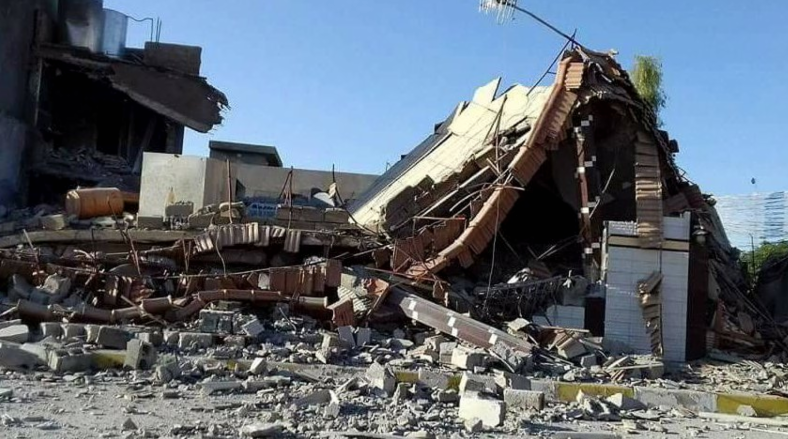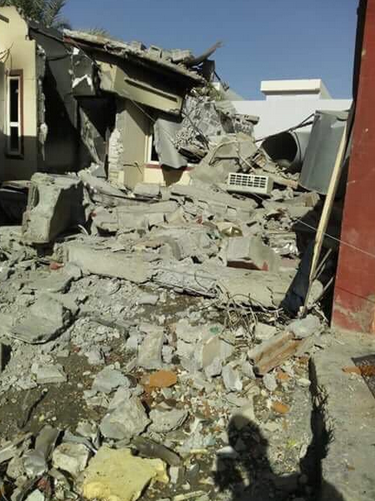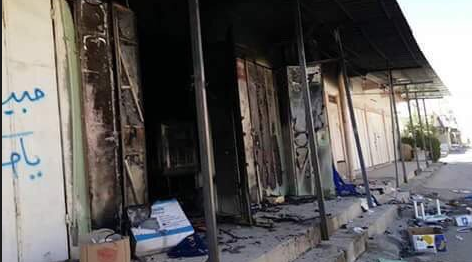Washington Kurdish Institute
October 26, 2017
On October 24th, the Kurdistan Regional Government (KRG) of Iraq decided to freeze the results of its recent Independence Referendum, which was held on September 25th. The freeze came about amid adamant rejection against the referendum from regional actors (e.g. the Iraqi government, Iran, Turkey) and the international community — most notable of this negative reaction was the recent military takeover of Kirkuk and other disputed territories from the KRG by the Iraqi government and Iranian proxy forces.
The decision to freeze the referendum was announced in a written statement from the KRG wherein the autonomous Kurdistan government laid out suggested conditions for mitigating the recent conflict over Kirkuk and the disputed territories. In the statement, the KRG called on the “immediate ceasefire and halt of all military operations in the Kurdistan Region” as well as the start of “an open dialogue between the Kurdistan Regional Government and the Iraqi Federal Government on the basis of the Constitution.”
The statement seems to indicate that while the KRG has not given up future dreams of an independent state, they may be accepting the reality of losing the disputed territories to Baghdad, as the latter, within the past week, has taken control of not only the disputed territories but other areas of the Kurdistan region beyond the post-2003 borders.
The KRG has lost about 40 percent of its overall territory in on-and-off clashes between the Peshmerga (KRG military forces) and Iraqi central government troops (in league with Iranian-backed militias). The most strongly disputed of these territories that the Iraqi government took control of is Kirkuk province. The Iraqi and Iranian proxy forces used state-of-the-art American military weaponry — weaponry that was provided to them to combat ISIS — against the Peshmerga forces. And while the U.S. government claimed to not take any sides in the conflict, its decision to do nothing to stop the advance of Iraqi forces was clearly taking a side — the side of the Iraqi central government and the Iranian proxies forces. A younger generation of Kurds have now tasted the bitter pill of Western betrayal, much as their elders did during the era of Kissinger. The U.S. made this decision despite the fact that the Iranian government, including the infamous General Qasem Soleimani, were clearly involved in supervising and coordinating the efforts of Iraqi government forces and Popular Mobilization Unit (PMU) militia forces.
And it was Iranian military, economic, and diplomatic pressure that eventually led to the KRG’s decision to wave the white flag. These recent events showed the KRG and its citizens that the United States cannot or will not do anything to stop Iranian-backed militias killing many Kurdish civilians and burning down numerous Kurdish homes and businesses.
Iran’s role in dividing the two major Kurdish parties (the Barzani-dominated KDP and the Talabani-dominated PUK) was also key in weakening the KRG position. This recent division hearkens back to conflicts between the two parties in the 1990s. A large part of this intra-Kurdish division stems from a glaring lack of strong civil society institutions and a weakening of transparent, democratic government in the Kurdistan region.
Other players like Turkey and the U.S. government put great pressure on the KRG to take conciliatory actions towards the central government of Iraq. For instance, Turkey’s President Recep Tayyip Erdogan decided to end an energy deal between the KRG and Turkey that was slated to last 50 years. Instead Erdogan opted to begin dealing directly with Baghdad for oil. This all comes despite the recent years of good relations between the KRG and Turkey. The people of Kurdistan learned again that another supposed regional “friend” would not stand by them when it matters most; for, Turkey showed it will not think twice on whether to side with Iran and Iraq against the formation of an independent Kurdish state.
While the U.S. welcomes the KRG’s decision to freeze the referendum results, this American complacency is short-sighted and fails to recognize the dangerous uncertainties ahead. Things could get worse, not only for the Kurds but also for the U.S. For example, will Prime Minister Abadi be able to close the Pandora’s box of territorial expansion he has now opened? That is, will Iraqi government and Iranian proxy forces stop at the pre-2014 borders or will they move further in trying to conquer Kurdish territory like Dohuk, Erbil, and Sulaymaniyah? How will U.S. forces react if the Iraqi Security Forces (ISF) and Iranian-backed militias attack this “green zone” (i.e. KRG-controlled territory post-2003)?
The U.S. government originally invested in Abadi as an Iraqi leader who would reduce Iran’s role in the country. Yet these recent events have clearly demonstrated that Abadi has limited control of the PMU forces, especially those accompanied by Iranian “advisers.” After U.S. Secretary of State Rex Tillerson called for Iranian militias to leave Iraq, Abadi sided with Iran and defended the militias’ presence and involvement. Iran later proudly declared that they had prevented the “creation of a second Israel in Iraq.” In the face of all these blatant statements from Iran about their involvement in this conflict in Iraq, in addition to numerous other evidence, the U.S. continues to sputter out a confused, fuzzy policy towards the situation.
The KRG’s decision at this time is to try and save what is left of Kurdish unity and the Kurdistan region. While Abadi’s recent decisions seem to be little different than those of Iraqi governments of old — he has continued the sectarian policies of his predecessor and political rival, Nouri al-Maliki. These policies have resulted in the suffering of millions of Iraqis, including countless displaced Sunni Arabs. In addition, the Iraqi government still stands as one of the most corrupt governments in the world. Despite Abadi’s claim to be “implementing the constitution,” he seems to care little for other essential portions of the constitution. Iraq’s constitution mandates a solution for its disputed territories, a mandate that Abadi ignores. The constitution also requires the Iraqi government to provide funds to the KRG in order to pay its civil servant salaries, another law Abadi has ignored. Thus, it appears Mr. Abadi doesn’t seem to actually understand the constitution of which he claims to be an ardent guardian.
At this point the United States’ options are limited. It must try to mediate talks between Baghdad and Erbil. But most importantly it must try to coordinate and limit military moves by both sides, as they are both equipped with Western-made, U.S. provided weapons — although, one should note, the Iranian-backed militias seem to have some of the best of this American weaponry. The reality which the United States must come to realize is that Iraq is now long lost to Iranian influence. The only region in the country that the United States has any hope of building a productive, beneficial relationship with is the Kurdistan region.
Yet while Kurds blame the U.S. for turning a blind eye during Baghdad’s recent aggression against them, the Kurds also have themselves to blame (e.g. a lack of unity, a decrease in democratic institutions and government). However, despite these faults, that is no justification for preemptive, Iranian-backed military action against the Kurdistan region all because of the sin of having voted 93 percent in favor of having an independent homeland called Kurdistan.
Photos: Destruction of Kurdish houses and stores by the Iranian-backed militias in Tuz Khormato town south of Kirkuk province.




